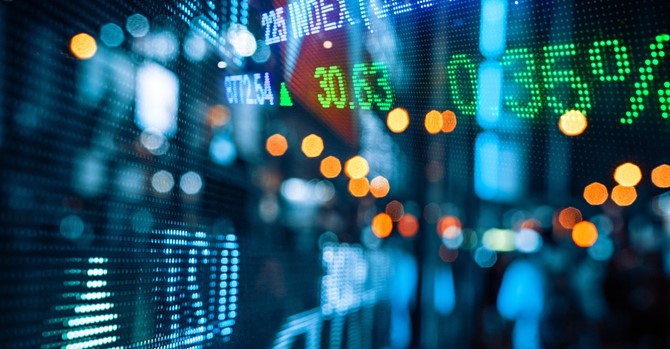OTC Markets
Advokatfirmaet Raeder is an approved OTC Markets Sponsor and assists clients who wish to cross-trade in the United States with listings on the OTCQX and OTCQB stock markets. Find out more about OTC Markets, F Shares, OTCQX and OTCQB below.

Q&A on OTC Markets:
What is OTC Markets and how does it work?
OTC Markets Group (“OTC”) operates the U.S. equity market for securities not listed on a national exchange. There are 11,000 U.S. and global securities that trade on OTC markets – which are segmented based on the level of their financial strength and disclosure. OTC operates the OTCQX Best Market, the OTCQB Venture Market, and the PINK Open Market. OTC’s mission is to create better informed and more efficient financial markets and to provide liquidity, execution services for brokers and investors and to empower companies to the improve the quality of information available to all market participants.
What are the main benefits of trading their stock in the US for European companies?
The main benefit for European or Nordic companies who trade on OTC Markets are that they now have a freely tradeable security, with a U.S. ticker symbol and a USD share quote, that is available to all U.S. investors, through their U.S. broker of choice. Most importantly, Nordic companies can accomplish this without having to do any additional U.S. regulatory or legal work.
OTC Markets gets to utilize a special SEC exemption, rule 12g32-b, which allows companies listed on Foreign Markets, to cross-trade on OTC utilizing their home market disclosure – so long as it is made available in English. That means that companies who are already public on the Nasdaq Nordic, First North, Oslo Bors, Oslo Axess, Spotlight Stock Market, etc. are not required to do SEC filings or registration, no Sarbanes Oxley Compliance, no US GAAP reconciliation, etc., – eliminating the most challenging or burdensome regulatory obligations required by US exchanges.
Is cross-border trading complicated?
This process is simple, cost effective, and efficient. This is further evidenced by the hundreds of companies from around the world, including some of the largest and most well-known brands such as Adidas, Heineken, Roche, BNP Paribas, Hugo Boss, etc., that trade on OTCQX and OTCQB Markets.
As a European company, what infrastructure do you need to have in place in order to get started with cross-trading?
As long as you are public on a quailed foreign exchange you have an opportunity to cross-trade on OTC markets and reap the benefits of better trading volume, enhanced liquidity, improved valuation, and U.S. shareholder growth. OTC stock market benefits any Nordic company that has a U.S. interest, whether it be, customers, employees, operations, growth targets, etc. Having a verified U.S. stock market to support your goals and initiatives is a valuable strategic asset.
How can Nordic companies generate US investor demand and increase visibility to the market?
OTCQX and OTCQB data is fed through all major U.S. data distributors, media outlets, and various research platforms and portals helping issuers engage a far greater network of U.S. investors than companies without a quotation on our marketplace. Additionally, OTC has a variety of complimentary investor relations tools that are included with your OTCQX/QB membership including: CEO Video Interviews, Podcasts, Market Open ceremonies, Virtual Investor Conferences – all designed to help companies maximize their visibility and tell their story to the broadest potential investor audience possible.
What is Ræder’s role as an OTCQX Sponsor?
To qualify for OTCQX, all U.S. and International companies must engage an OTCQX Sponsor. Sponsors are limited to the most qualified firms that have a high level of capital markets expertise. Investment banks, corporate brokers, DR banks or US qualified attorneys may serve as sponsors. By virtue of having two attorneys, who are duly admitted to practice law in the State of New York, Ræder has qualified as the first OTCQX sponsor in the Nordics.
The Sponsor's Role:
The integrity of the OTCQX market relies on the quality of the companies that Sponsors guide for membership. The Sponsor will:
- Provide professional guidance to the issuer on creating investor demand as they build long-term relationships with management
- Assist companies in discerning the information that is material to the market and should be disclosed to investors
- Provide a professional review of the Company's disclosure
- Advise how to strategically improve interest in the Company as it seeks to develop new and replace selling shareholders
- Educate the Company to enable it to understand its responsibilities under the OTCQX Rules
- Submit a Letter of Introduction to OTC Markets Group on behalf of the Company
Q&A on “F Shares”
What is an F share
While some US investors can trade directly in a foreign company’s local market, many US investors prefer to see quotes in US dollars during their regular trading hours. To provide this access and to facilitate trade reporting, broker-dealers create trading symbols, or tickers, of foreign securities in the US. These tickers are 5 letters long and end with the letter “F”. As such, they are traditionally called F shares. More than 3,700 companies with primary listings on more than 30 global markets, such as London, Frankfurt, Paris, Madrid, Milan, Toronto, Tokyo and Oslo have an F share on OTC Markets.
How is an F share traded?
US broker-dealers continuously price F shares in accordance with local market share price movements and available liquidity. While trades are executed in US dollars by US broker-dealers, the shares are settled, cleared and custodized in your local market or, under certain conditions, in the US (Canadian or DTC eligible F Shares). As such, trading of your F share in the US increases your overall global liquidity.
What does an F share mean for US investors?
When a US investor researches and trades a non-US security, it is frequently through the F share ticker as US brokerage accounts often only display US ticker symbols.
From the perspective of an investor, trading an F share is similar to trading a US security. US investors can trade in US dollars during US trading hours through the retail, online or institutional broker-dealer of their choice.
How are investors that trade through the F share recorded on Shareholder Lists?
US investors that purchase the F share appear on your company’s shareholder list based on the local disclosure requirements in the same manner as an investor that purchases shares in your home market.
How can I improve the visibility and liquidity of my F share?
While a company may make high quality disclosure available through its home country exchange, its prestige, company news and financials do not automatically flow to US investors. Companies must take steps to ensure that their overseas financials are available to key audiences in the US or that company news is available in places where investors conduct research.
As the operator of the markets where more than 3,700 F shares are traded, OTC Markets have established recommendations to remove trading restrictions and improve the flow of information in the U.S. without changing your reporting process.
More about OTCQX and OTCQB
OTCQX
Companies listed on an exchange outside of the U.S. and building their U.S. investor relations program can maximize their potential by ensuring investors have access to research and the ability to trade their ordinary shares.
Trading directly into foreign markets is often extremely difficult for smaller institutions and many high net worth self-directed U.S. retail investors. U.S. investors are often unable or unwilling to buy a foreign stock without a U.S. dollar denominated securitythat they can trade locally.
The OTCQX Best Market is a U.S. public market that offers an investor experience comparable to a stock exchange – giving global companies already listed on international exchanges a well-regulated way to strengthen U.S. visibility and tradability without the complexity and cost of a U.S. exchange listing. This enables companies to build greater trading volume, a diversified shareholder base and enhanced liquidity on their home market so they can achieve fair valuation.
KEY BENEFITS
- Efficient Market Standards: Companies may leverage their local market disclosure (SEC Exchange Act Rule 12g3-2(b)). There are no Sarbanes-Oxley and SEC Reporting requirements to trade on OTCQX, bypassing burdensome, costly and duplicative NYSE and NASDAQ requirements.
- Reputation: OTCQX is recognized by the SEC as an established public market. Investors and brokers look for the OTCQX designation when researching and trading a security as an indication that a company meets high financial standards and follows strong disclosure processes.
- Visibility: Companies on OTCQX engage a far greater network of U.S. investors, data distributors and media partners, ensuring U.S. investors have access to the same high-quality information that is available to investors in their local market, but through U.S. platforms and portals used to conduct research.
- Better Trading: Companies that leverage OTCQX see greater liquidity and fewer trading restrictions for brokers and investors compared with companies that have no U.S. market or those that trade in the U.S. on the Pink or Grey Market. (Grey Market means no U.S. market maker is quoting the security.)
OTCQB
The OTCQB® Venture Market is for early-stage and developing U.S. and international companies. To be eligible, companies must be current in their reporting and undergo an annual verification and management certification process. Companies must meet $0.01 bid test and may not be in bankruptcy.
Contact us

Erik Salbu Aasland
Partner
Attorney-at-Law, State of New York
+47 482 30 374eaa@raederbing.no
Carl Garmann Clausen
Partner
Attorney-at-Law, State of New York
+47 958 75 090cgc@raederbing.no
Want to stay up-to-date?
Yes please!
At Ræder Bing, we are passionate about our fields of expertise and keen to share what we know and learn. Subscribe to our newsletter and stay updated here.
Laster....